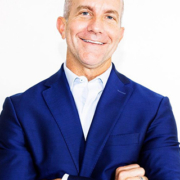(CBS DFW)- Mental health has become a much larger and more accepted topic of conversation in today’s digitally-connected and interconnected world. As celebrities and athletes have begun to open up about their own battles, it seems that society has begun to do the same. There’s a willingness to have more discussion about mental health and its attending factors. People struggling with addiction, anxiety or depression are no longer ostracized as they once were, but there is still plenty of growth to be had in the way we think about mental wellness in general.
Part of the problem that many people struggling with these conditions have is finding a treatment center that can work within their day-to-day lives. Dr. Kevin Gilliland, executive director of Innovation 360, has looked to build just that. The treatment centers, located in Dallas and Austin, Texas help people that are struggling with various mental health issues by providing a more flexible and individualized treatment program. What stands out is that Innovation 360 isn’t strictly an in-patient treatment facility that requires people to remove themselves from their daily routine. There isn’t one set catch-all plan, rather each case and person is given a specific plan to treat and manage their mental health issues designed for their needs.
Read more









